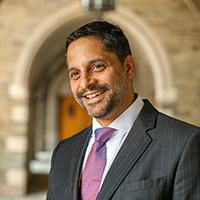Property Law: Rules, Policies, and Practices, Ninth Edition
Property Law: Rules, Policies, and Practices, Ninth Edition
Buy a new version of this textbook and receive access to the Connected eBook with Study Center on Casebook Connect, including lifetime access to the online ebook with highlight, annotation, and search capabilities. Access also includes practice questions, an outline tool, and other helpful resources. Connected eBooks provide what you need most to be successful in your law school classes.
This hugely successful materials-and-problems book is acclaimed for its textual clarity, evenhanded perspective, and contemporary, up-to-date character. This book is easily distinguished from other property casebooks for its plain-language descriptions of legal doctrine; explanations of the social ramifications of our system of property law; emphasis on statutory and regulatory interpretation; comprehensive treatment of public accommodations and fair housing law, tribal property issues, and intellectual property; and use of the problem method to teach legal reasoning and lawyering skills. Streamlined for more accessible teaching, the Ninth Edition has been thoroughly updated to reflect significant changes in the law of property, including developments in intellectual property, housing discrimination, regulatory takings, and more.
New to the 9th Edition:
- Updated to reflect significant changes in the law of property to help professors keep current and be aware of emerging disputes.
- Streamlined to assist in making teaching from the casebook more accessible, without sacrificing coverage and depth.
- New materials and problems have been added in an array of areas, including:
- New lawyering exercises enabling students to parse doctrine and transactional and statutory language in ways to be tested on NextGen bar exam;
- City of Grants Pass v. Johnson (2024), holding that the Eighth Amendment does not prevent the prosecution of homeless people for sleeping on the streets;
- Developments in intellectual property, including Andy Warhol Foundation for the Visual Arts, Inc. v. Goldsmith (2023), on fair use in copyright, and Jack Daniels Properties, Inc. v. VIP Products, LLC (2023), on parody and trademarks;
- Antitrust litigation against the realtor industry;
- Shifts in fair housing law, including widening focus on algorithmic discrimination across the market for housing; and
- Supreme Court developments in regulatory takings, including Tyler v. Hennepin County (2023), addressing the constitutional status of surplus equity after a foreclosure, and Sheetz v. County of El Dorado (2024), clarifying that legislative exactions are subject to the Nollan/Dolan analysis.
Professors and students will benefit from:
- Clear, concise, accessible coverage of core property doctrines, through case law, statutes, and regulatory materials;
- Fully updated engagement with contemporary controversies in our system of property; and
- Excellent opportunities for problem- and exercise-based learning in every section.
Contents
Preface to the Ninth Edition
A Guide to the Book
How to Brief a Case and Prepare for Class
Acknowledgments
PART ONE
PROPERTY IN A FREE AND DEMOCRATIC SOCIETY
CHAPTER 1
Trespass: The Right to Exclude and Rights of Access
CHAPTER 2
Competing Justifications for Property Rights
CHAPTER 3
What Can Be Owned?
PART TWO
RELATIONS AMONG NEIGHBORS
CHAPTER 4
Adverse Possession
CHAPTER 5
Nuisance: Resolving Conflicts Between Free Use and Quiet Enjoyment
CHAPTER 6
Land Use and Natural Resources Regulation
CHAPTER 7
Servitudes: Rules Governing Contractual Restrictions
on Land Use
PART THREE
OWNERSHIP IN COMMON
CHAPTER 8
Concurrent, Family, and Entity Property
CHAPTER 9
Present Estates and Future Interests
CHAPTER 10
Leaseholds
PART FOUR
THE LEGAL FRAMEWORK OF THE MARKET
FOR REAL ESTATE
CHAPTER 11
Real Estate Transactions
CHAPTER 12
Fair Housing Law
PART FIVE
CONSTITUTIONAL PROTECTION FOR PROPERTY
CHAPTER 13
Takings Law
Table of Cases
Table of Statutes
Index
Product Information
Property Law: Rules, Policies, and Practices, Ninth Edition
Connected eBook with Study Center + Hardcover
Notify me when back in stock
We will send a notification to example@email.com when this product is back in stock.
Property Law: Rules, Policies, and Practices, Ninth Edition
Connected eBook with Study Center (Digital Only)
Property Law: Rules, Policies, and Practices, Ninth Edition
LLPOD



